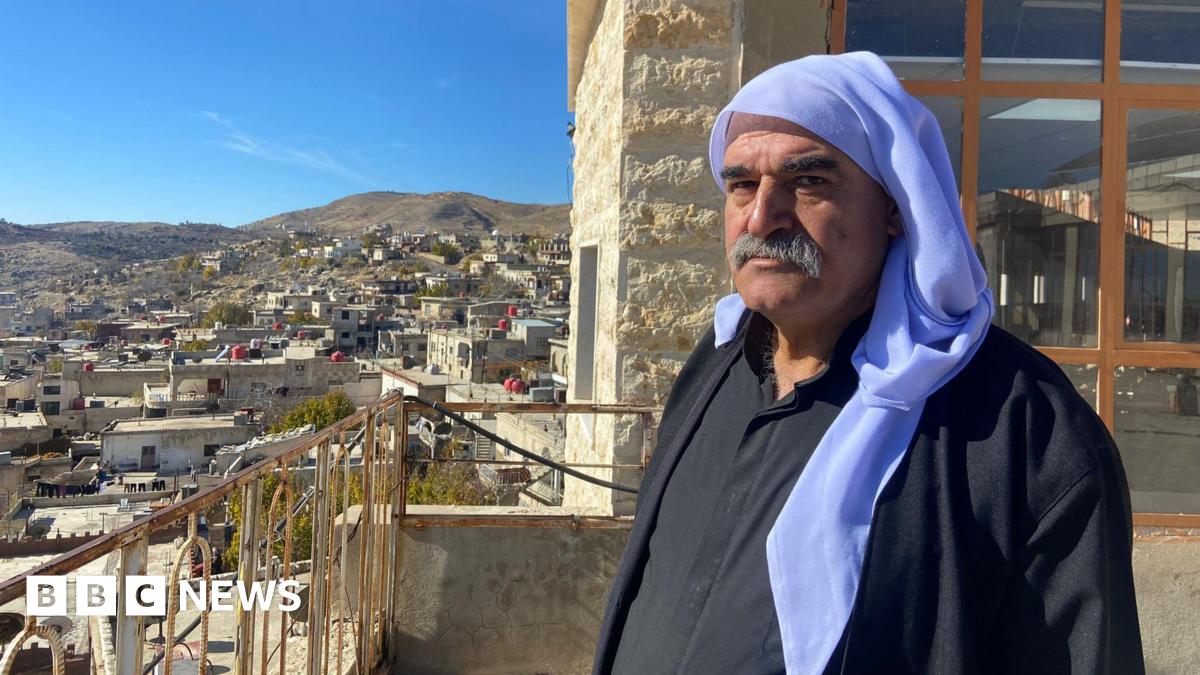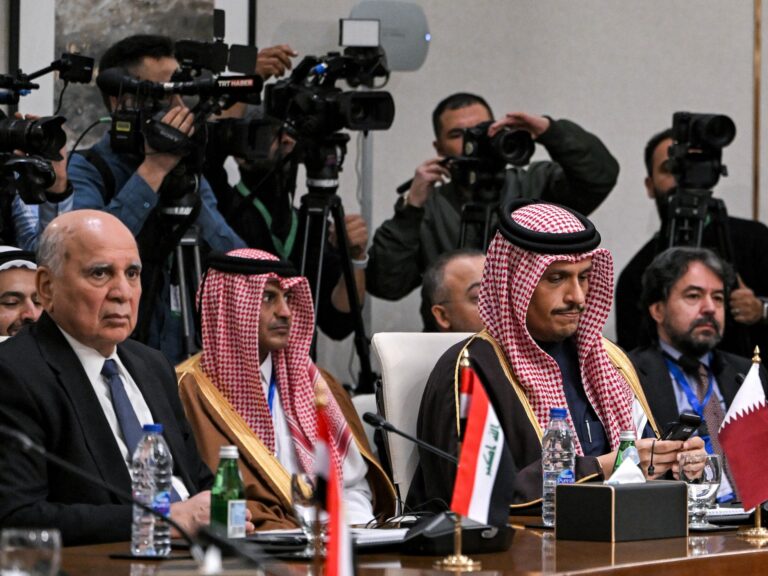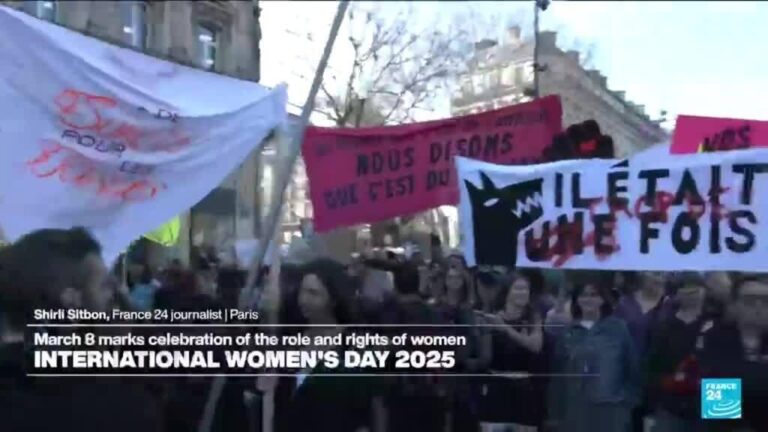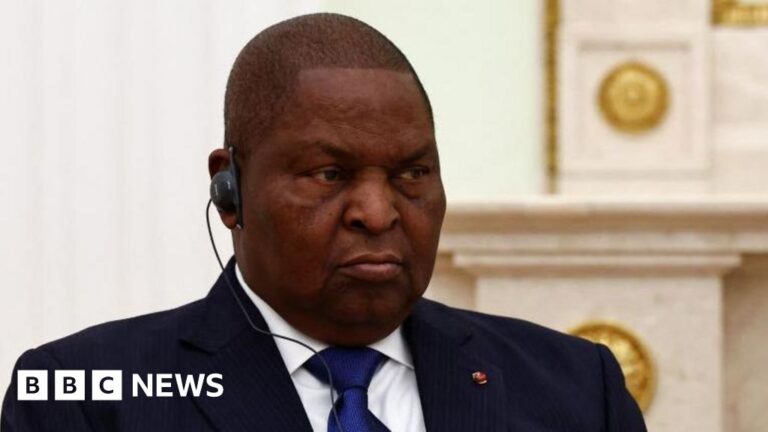The BBC speaks to Syrians who watched the Israeli attack
An hour’s drive from Damascus, we meet the Israeli army on the rural road to the Syrian village of Hadar.
Two military vehicles and several soldiers in full combat gear man an impromptu checkpoint – a foreign power in a country celebrating its independence. They waved at us.
It was evidence of an Israeli incursion into Syrian territory – a temporary takeover of a UN-controlled buffer zone created by a ceasefire agreement 50 years ago, he said.
“Maybe they will leave, maybe they will stay, maybe they will make the area safe, then they will leave,” said Riyad Zaidan, who lives in Hadar. “We want to hope, but we have to wait and see.”
The head of the village, Jawdat al-Tawil, pointed to the Golan Heights area, which was occupied by Israel in 1967 and is clearly visible from Hadar’s terraces.
Many residents here have relatives who still live there.
Now they see Israeli forces moving regularly around their villages, some of them entering the demilitarized zone. On the slope above, Israeli bulldozers can be seen working on the hillside.
A week after the fall of President Assad’s regime, the sense of freedom here is tinged with fatalism.
Jawdat al-Tawil proudly told me how the village was defended from militia groups during the Syrian civil war and showed me portraits of dozens of men who died in the process.
“We do not allow anyone to encroach on our land. “(But) Israel is a state – we cannot stand against it. We stand against individuals, but Israel is a superpower.”








